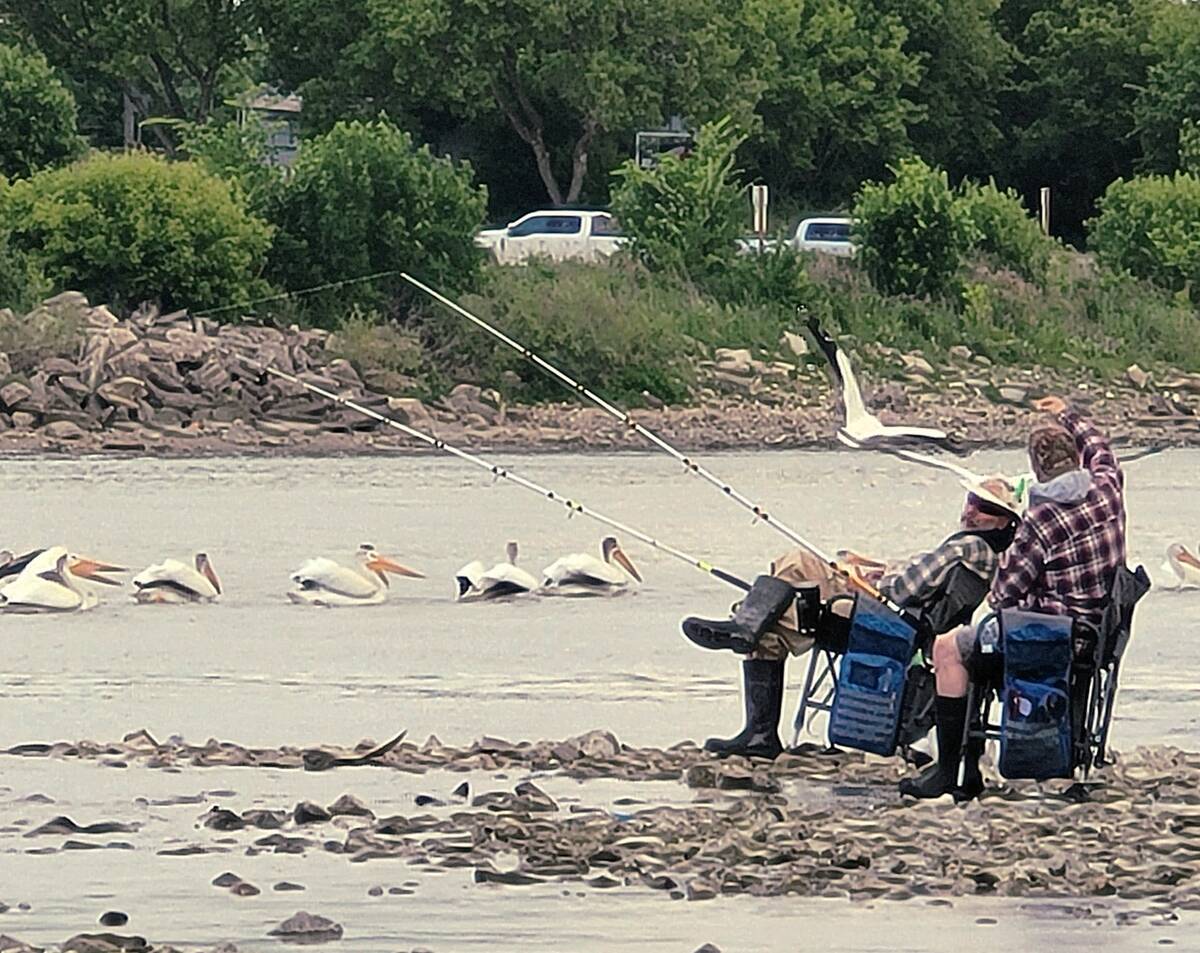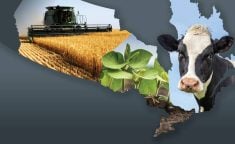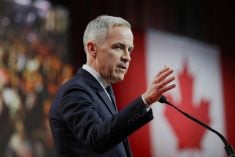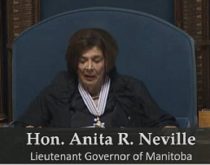Organizers of a farmers’ market in Winnipeg’s South Osborne neighbourhood want voters to think of food as an election issue.
That’s why they brought the ‘Eat Think Vote’ campaign to the season finale of the farmers’ market on September 25.
Why it matters: While food isn’t a standard election topic, it coincides with many other issues such as agriculture, economy, trade and health care.
“You don’t often hear food as an election issue, but it’s intertwined with lots of popular election issues,” said market co-ordinator Asha Nelson.
Read Also

The joys of fishing from shore
Manitoba has many lake and river shorelines to drop a fishing line without the cost of a boat, making shore fishing more accessible, and anglers can still catch impressive fish.
“It’s not just about buying good healthy food,” said Nelson. “We’re starting to think a little bit deeper about where that food is coming from and what sorts of supports are needed… in order for these spaces to thrive and also for our producers to have a sustainable livelihood, and for our land to give back to us, and for our agriculture to mitigate the effects of climate change.”
Eat Think Vote is a non-partisan campaign to gather community members across Canada to chat with federal election candidates about food issues, the organization’s site says. Local candidates from all parties were invited to join.
Incumbent MP Jim Carr represented the Liberal party. James Beddome was there for the Green party. Elizabeth Shearer represented the NDP. A candidate for the Christian Heritage party was present but left before the Manitoba Co-operator could talk to her.
The Co-operator took three of the question prompts provided at the event and tried them out on all three candidates. Here’s what they said.
What do you see as the main issue related to food in this riding or Winnipeg?
NDP | “This (farmers’ market) isn’t the norm that we see in our grocery stores. We definitely need to get more local, healthy food on the tables of Canadians,” said Shearer. “Healthy food shouldn’t be something out of reach for everyday Canadians.”
Shearer, who has a background in environmental studies, said the government needs to invest in farming communities so they can respond to the effects of climate change and unpredictable weather. She added that more research needs to be done on how to boost local food systems instead of just producing for export.
Liberal | “I think that the main issue related to food anywhere is that people have enough of it, and of high quality,” Carr said, adding that availability of good food is an important issue across Canada.
Carr plugged the new Canadian food policy, announced in June. It promised more than $134 million toward food projects, including local food infrastructure and support for northern communities.

Green | Beddome said he sees two main issues. The first is poverty and food insecurity. The Green party is pushing for a guaranteed livable income, which would go toward dealing with means and access to food, said Beddome.
He said that the government also needs to take a look at the impact of food on the environment and promote regenerative agriculture.
“Agriculture both is part of the problem when it comes to addressing the climate crisis, but it can also be part of the solution,” Beddome said.
What are your ideas for supporting farmers’ markets , CSA’s and institutional purchasing of local food?
NDP | “I love the idea of having more farmers’ markets and investing more infrastructure into having small-scale producers be able to reach farmers’ markets,” said Shearer. She said that while farmers know how to produce good food, more needs to be done to market it locally.
She added that rural communities need better access to internet and better infrastructure so they can better access new markets.
Liberal | Carr once again touted the Liberal government’s food policy, which he said supports farmers’ markets and puts millions into supporting those who aren’t able to afford quality food.
He added that the government must work with community groups so they have the wherewithal to be present in communities.
Green | Beddome said supporting these markets and groups would begin with working with and listening to local community organizations. He added that these groups can do a lot with small grants and supports.
“There’s so much lifting that they do,” Beddome said.
Beddome added that the Green party has a ‘small business first’ focus, with an overall objective of localized food markets built on regenerative agriculture and supporting small producers instead of large exporters.

What are your ideas for supporting more local food processors to create more value-added products?
NDP | Shearer said more work and research must go toward promoting high-protein crops such as pulses, which can be used for emerging products.
Liberal | “We have what the world needs — protein,” said Carr. He said the Liberal government is looking to add export markets so producers can have greater access.
Producers should “see the world as their market,” Carr said.
Green | Beddome said much of what producers need is a government that will support them and the local, regenerative agriculture economy instead of focusing more and more on the export economy.
“I think that’s where we’re going to find most of the food innovation going forward,” he said.
He added that the government needs to look at food systems as a security issue and rethink regulations accordingly.
“If our food systems were to fall apart, which they very may well in an era of a warming planet, we don’t have enough food to necessarily even feed ourselves,” Beddome said.




















